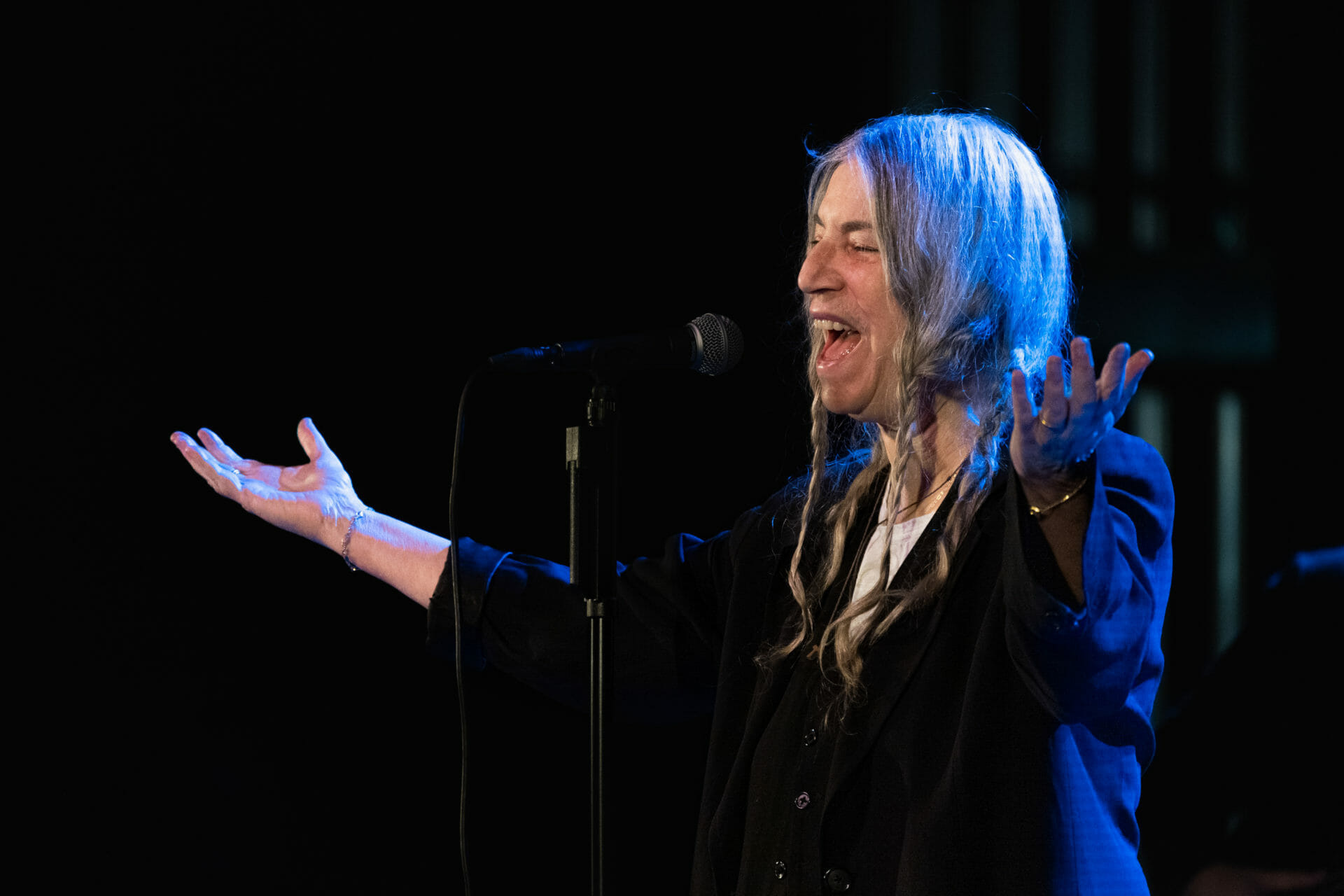Big Ears Festival

photo credit: Derek Beistad
***
Knoxville Tennessee
Friday, March 25 – Sunday, March 27
It’s no exaggeration to describe the Big Ears Festival as one of the most unique and eclectic musical gatherings one may ever be fortunate enough to encounter. Spread over the span of four days and encompassing a good part of Knoxville Tennessee’s downtown environs — both its two stately theaters that lie within a block of one another on Gay Street (The Tennessee and the Bijou), as well as various venues located in the historic Old City — it effectively melds the charm and character of a knowing artistic community with a line-up that includes some of the most adventurous music on the planet. While its focus lies in jazz, avant-garde and sounds of a decidedly experimental nature, it also makes room for artists of a vintage variety who have left an emphatic impression on the course of modern music over the past several decades.
This year’s festival, which took place from Thursday March 24 through Sunday March 27, was no exception. The array of artists spanned a remarkable array of genres, often intermingling and defying description in the process. The Preservation Hall Jazz Band performed two lively sets at the popular Jig and Reel pub and were joined by members of the East Tennessee Bluegrass Association for a startling display of versatility and dual dynamics. Composer Ellis Ludwig-Leon, best known as the musical architect for the progressive chamber pop band San Fermin, premiered an intriguing new work titled “False We Hope” alongside the Attacca Quartet. For their part, Attacca shared a new composition of their own the night before on the Tennessee Theater stage, a work for three violins, cello and percussion that they called Real Life and which won rave reviews from an enthusiastic audience in the process.
Not surprisingly, new works dominated the proceedings, shared by artists with a natural penchant for progressive posturing. The bigger names — Joe Henry, Low, Bill Callahan, John Medeski, the Kronos Quartet, Animal Collective, Marc Ribot, Annette Peacock, and Bill Frisell naturally attracted the most interest, and it wasn’t unusual to see attendees lined up at the various venues and hoping to find seating before the venues declared they were at their legal limit. Indeed, attention wasn’t limited to the more eclectic offerings. Singer/songwriter Tift Merritt and her accompanist, veteran pedal steel player Eric Heywood, drew an audience eager to lean into her persuasive melodies and decidedly mellower designs.
All in all, most of the music was either decidedly discordant or pensive to the point where they took listeners to a higher plain, presumably without the use of outside additives. Any given performance offered an array of tones and textures, seemingly spiked by imagination and a desire to share a sublime sojourn.
The two highlights of the entire festival came early on. Sparks’ first visit to Knoxville was marked by a boisterous performance at the Tennessee Theater on Thursday, one which found the Mael Brothers easily living up to their reputation as unabashed purveyors of perky pop who literally haven’t faltered in stride despite a career that spans over 50 years. Russell, the younger of the two, still manages to bounce exuberantly and enthusiastically across the entirety of the stage. For his part, older brother Ron still maintains his stealth-like glare while affixed to his keyboards, occasionally moving to center stage for an occasional spoken refrain or to offer an awkward dance step or two. Aided and abetted by a five piece backing band that remained way to the rear, the group ran through a litany of greatest hits — “Angst in my Pants,” “Get in the Swing,” “I Predict,”“Stravinsky’s Only Hit,” “Tips for Teens,” and an encore consisting of “This Town Ain’t Big Enough for Both of Us,” “My Baby’s Taking Me Home” and “The Number One Song in Heaven.” Russell repeatedly thanked the crowd for their enthusiasm, and at one point, after sharing the song “Wonder Girl” — noting that it was originally recorded under their original aegis as Halfnelson and receiving appreciative applause in return — expressed surprise that there were actually Halfnelson fans in attendance.
On the whole, it would be hard to imagine a more joyful affair.
Friday night, Patti Smith lived up to her legend as well. With an outstanding band that included longtime foils, guitarist Lenny Kaye and drummer Jay Dee Dougherty, as well as superb bassist and keyboard player Tony Shanahan and her son, guitarist Jackson Smith (with whom she kept up some back and forth mother-son patter), the group rolled through a number of archetypical anthems that have defined Smith’s career from the very beginning — “Dancing Barefoot,” “Pissing in a River,” “Because the Night,” and “Gloria,” among them. Smith was in fine voice throughout and her rapport with the audience was equally obvious, especially when she went to the cusp of the stage and made eye contact with the folks in the front rows. At 75 years of age, both she and Kaye still exuded the enthusiasm of the 20-somethings who took New York’s nascent punk scene by storm. In so doing, Smith proved that modesty and musicality can go hand-in-glove, and when she brought Andrew, her stage manager, out to center stage for a rendition of “Happy Birthday,” her affection was also apparent. So too, a sensitive reading of Bob Dylan’s “One Too Many Mornings” proved both tender and touching, proving that at this stage of her career, Smith is both a fierce warrior and a remarkable singer whose pouting and pontificating still find her singing better than ever.
That then, is the magic of Big Ears, a gathering where the varied and vintage find common ground.



















